![]() Part 1 Part 2 Part 3 Part 4 Part 5 Part 7 Sonja's c.v. Sonja's Design page Sonja'a art made in 1998
Part 1 Part 2 Part 3 Part 4 Part 5 Part 7 Sonja's c.v. Sonja's Design page Sonja'a art made in 1998
part six nederlandse versie
|
About two performance works:
|
Savour the Experience |
Savour the Experience, |
|
My purpose was to get people to talk about art and to handle it. Each object had the words, Savour the experience engraved on them, and this was my point. That art was experience and this performance focused on the presentation of an art experience. | 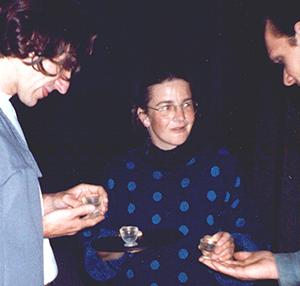
Savour the Experience, |

Above: Performance outside
|
Change is a law of nature, 1996 onwards
|
|
Most people took a coin in their hands and looked at it and fiddled with it while we talked. |
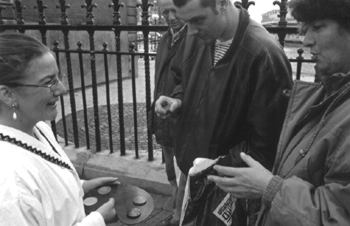
Change is a Law of Nature, Hull, U.K.
|
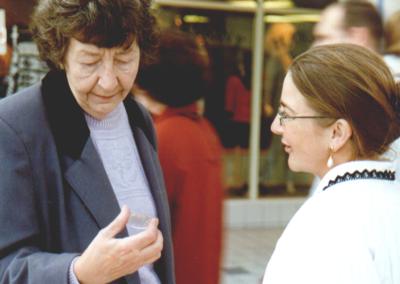
Change is a Law of Nature, Hull, U.K.
| what I was really doing was getting them to consider the issue of ´value´ or ´values´ and in this case their own contribution to this process (the price was what they offered and I then considered that and talked about whether what they had offered was fair or representative). |
What they really were valuing was the trust they developed in me -the artist and through that the art object.
|
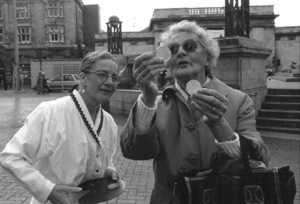
Change is a Law of Nature, Hull, U.K.
|
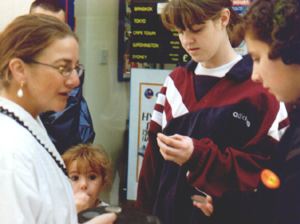
Change is a Law of Nature, U.K.
|
"Commerce is as a heaven, whose sun is trustworthiness and whose moon is truthfulness"
|
One aspect of these exchanges was that currency became a memento of change and exchange itself rather than only
a means of trade.
|
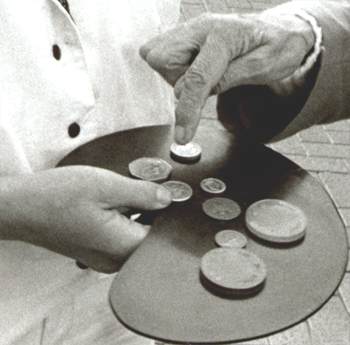
Change is a Law of Nature, Hull, U.K.
|
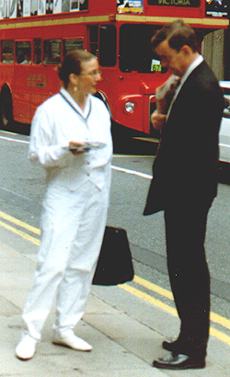
Change is a Law of Nature,
|
I was stunned by the receptiveness of people, and it was a great learning experience as well as a lot of fun. People's faces, after the initial unease, would light up, and they really wanted to trade with me, because they valued 'values', not just because of the piece of plastic in their hands.
|
Maastricht is a provincial city at the periphery of Dutch decision-making, where there is a pride in their own language and distinctive Limburg culture.
|
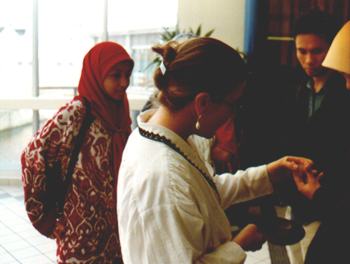
Change is a Law of Nature, Hull, U.K.
|
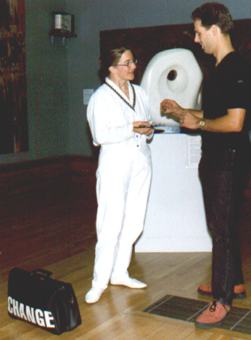
Change is a Law of Nature,
|
I believe that an auxiliary currency (whether of language or of money) is necessary to facilitate communication (and we have it whether we like it or not, say in the power of the DM, which influences other European currencies) and it is healthier to decide on this as an auxiliary, rather than leave it to the majority becoming the deciding factor, where strange ideas such as cultural superiority might come into play. |
We all need a sense of the myth, romance, the positive or the human, in order to work through our own disappointments, fears or ignorance.
More about this work in an interview with Johannes Birringer |
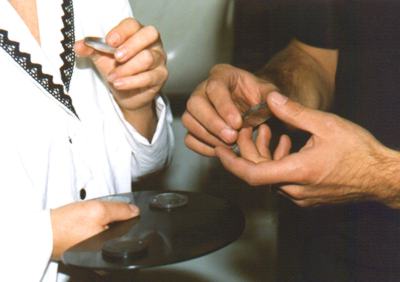
Change is a Law of Nature, Hull, U.K.
|